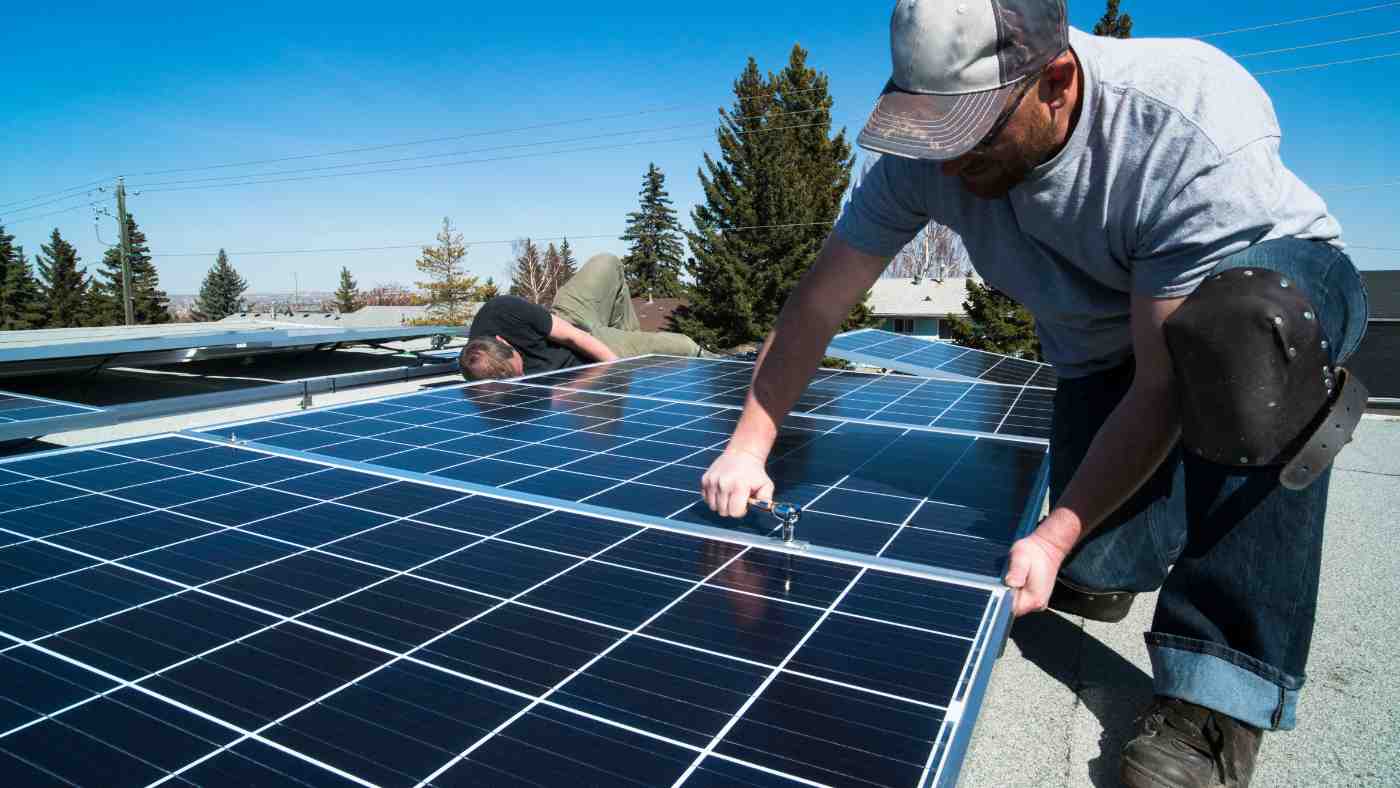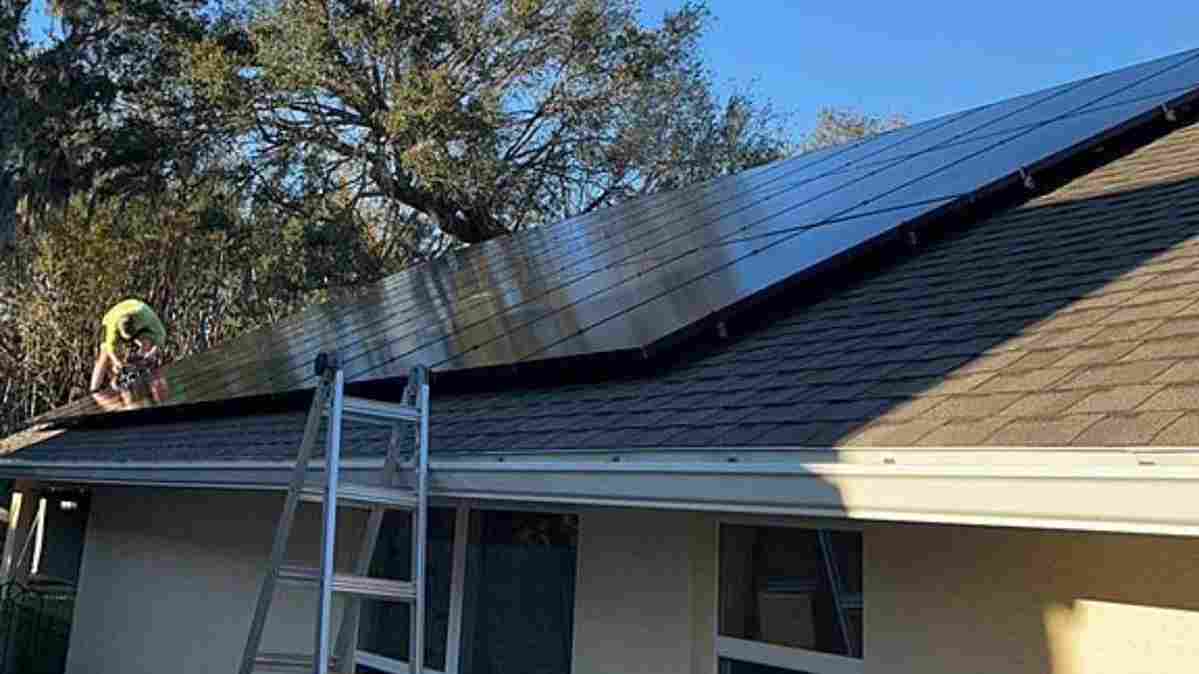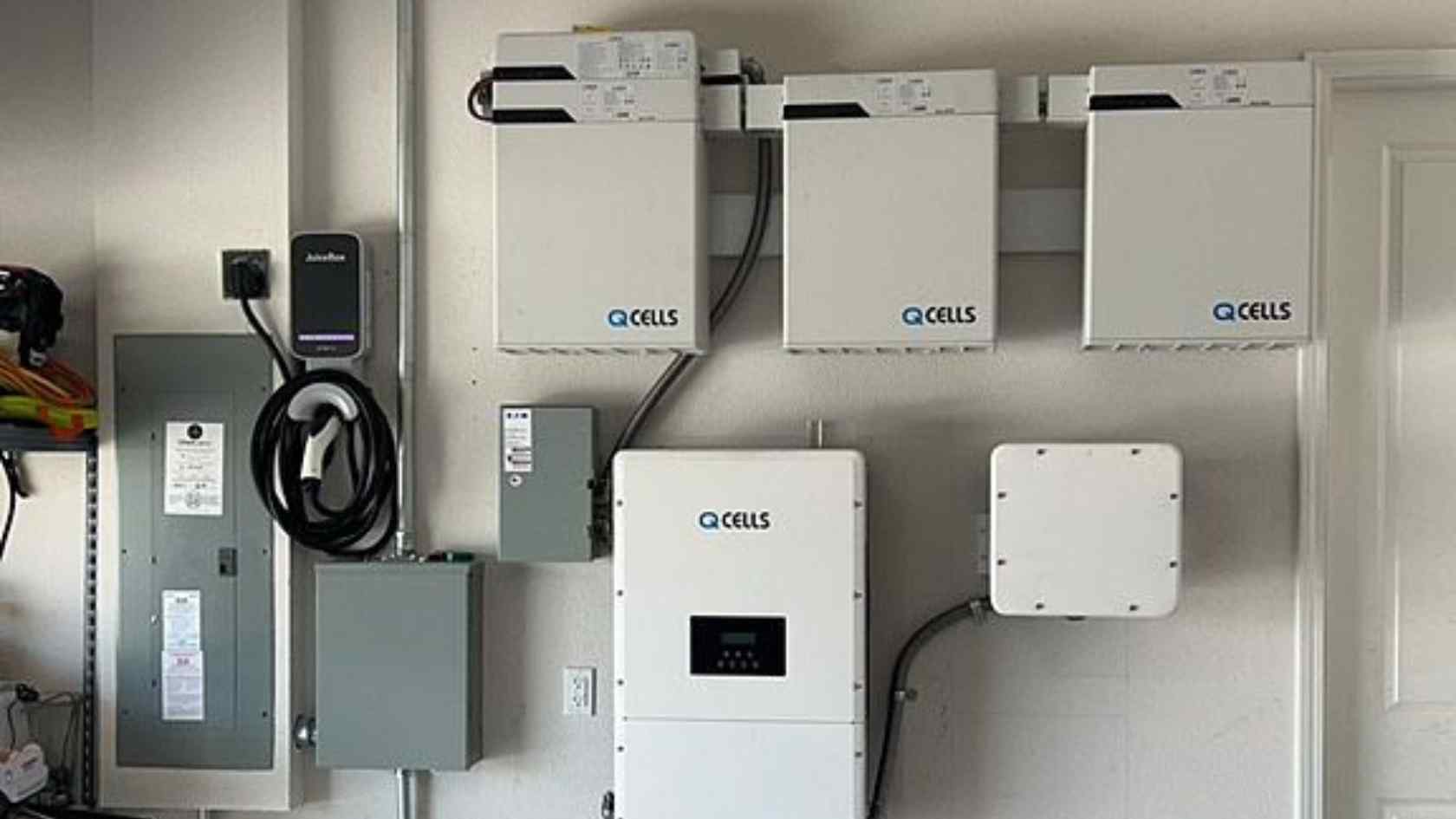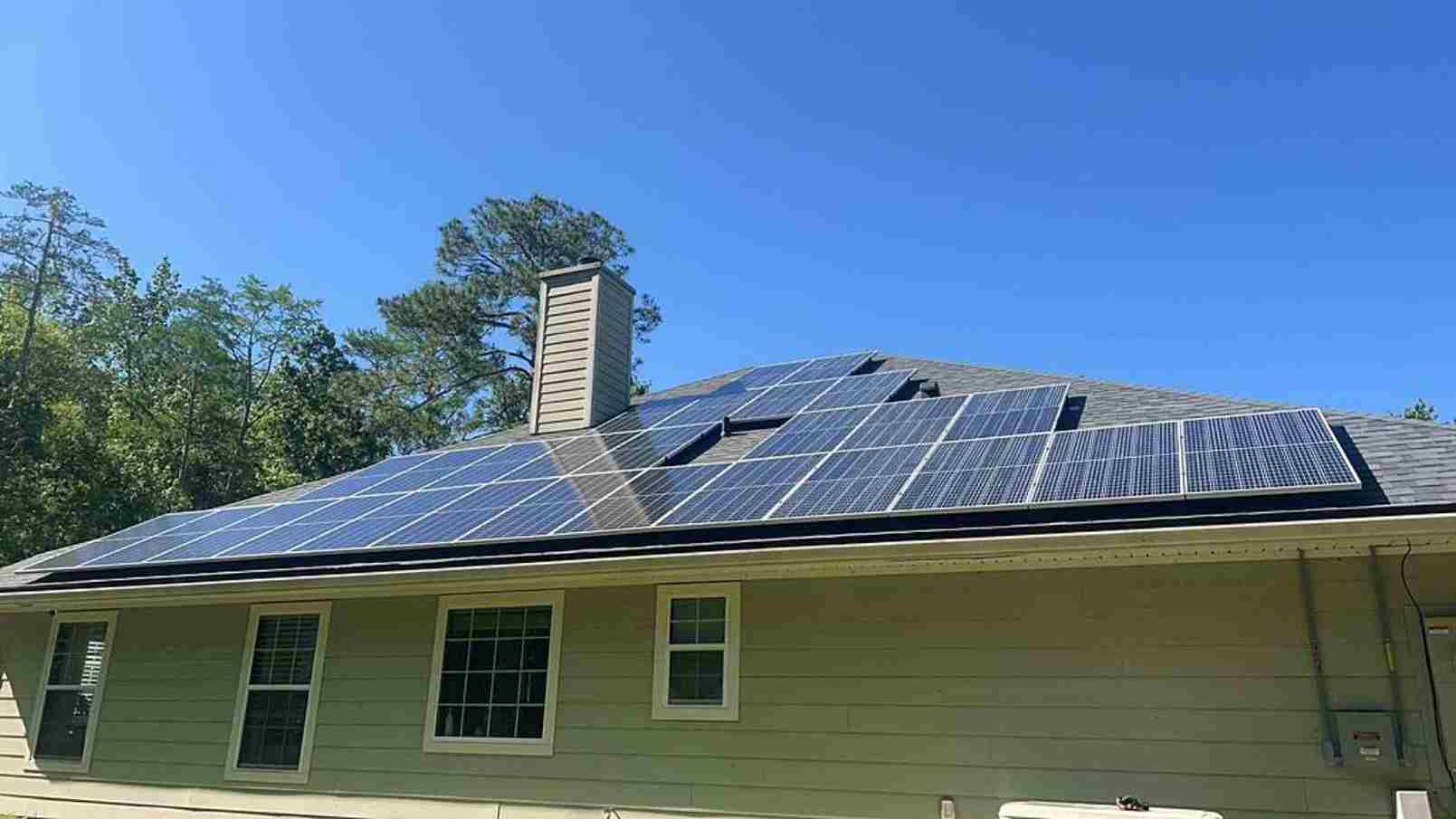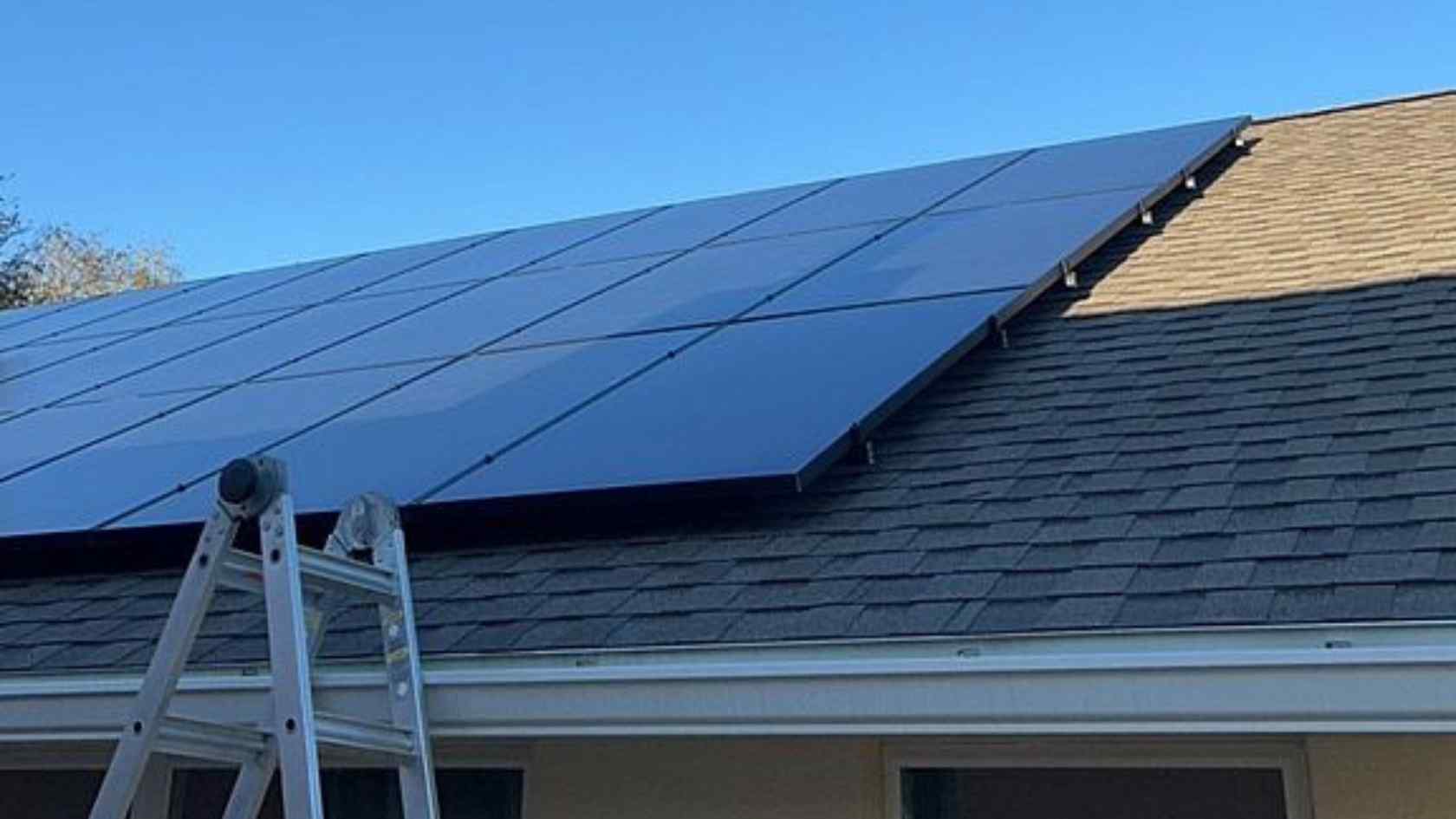How much solar panel maintenance is required? Like other roofing components, solar panels don’t require much once they are installed. For Florida homeowners, ensuring the panels receive enough sunlight is key to maximizing energy production. This may mean regular tree trimming around your property or manual cleaning to remove dust buildup.
Solar Panel Maintenance: What’s Required
Solar panel maintenance requires very little work from homeowners. Even better, rooftop solar panels are often tilted to maximize sun exposure. This also allows rainfall to help clear debris and dust build-up for you. If you live in an with little rain, then you will need to clean your solar panels manually. A garden hose is usually enough to remove any debris.
Outside of a light cleaning or dusting, homeowners only need to worry about the panels getting enough sun. For example, landscaping or trees can block the sun from hitting some or all of the solar panels. So you’ll need to periodically check your landscaping and trim back anything getting in the way.
How Long Do Solar Panels Last In Florida?
Manufacturers estimate that Florida solar panels can operate at peak performance for 20-30 years as long as they are not damaged by weather and are properly maintained. Once solar panels have reached that age, they can and will continue to work to power your home but may be less efficient. The loss in power will likely be negligible and will not outweigh the total energy savings generated from solar panels. Performing regular solar panel maintenance will help them last as long as possible.
Will Solar Panels Still Work After 20+ Years?
The loss of energy efficiency in solar panels over time is due to a natural reduction in chemical potency within the panels and is called the degradation rate. Studies show the average degradation rate for solar panels is .5% per year after year 20. Simply put, this means that a 20-year-old solar panel produces 90% of the same energy as it did in year one.
Can Solar Panels Withstand A Hurricane?
Florida experiences a fair share of severe weather each year – mainly strong winds and potential hurricanes. Homeowners often fear that adding solar panels makes their homes more susceptible to damage, or worse, that storms could destroy existing panels.
The good news is that solar panels are much more durable than people think! On average, solar panels on the market can withstand wind speeds up to 140 MPH without the risk of detaching from the roof. For reference, a Category 4 Hurricane’s wind speeds range from 130-156 MPH. Solar panels are also waterproof and crack-resistant. If a major storm impacts your home, small repairs and solar panel maintenance may be needed to keep the system running as efficiently as possible.
Can You Monitor Solar Panel Performance?
At Raze Solar, we have an app that allows homeowners to track and monitor their solar panel performance. Should you see a drop in production, it could mean that solar panel maintenance is needed. You’ll know if you need a solar panel or microinverter replaced immediately.
One key benefit of having an app to track performance is that you can track energy production and usage over time. For example, you’ve probably heard that doing some household chores like laundry at night can save energy, but this app lets you see it in real-time! Homeowners can learn trends in their energy usage that can help them make adjustments to see more savings.
Can Severe Weather Damage Solar Panels?
Central Florida is no stranger to severe weather! Not only do we get our fair share of thunderstorms, we see 1-2 named hurricanes each year.
Should the threat of severe weather keep you from installing solar panels?
No! Solar panels are durable and can withstand harsh storms. In fact, the Department of Energy studied and found that most solar panels can withstand hail up to 2 inches in diameter. In addition, most homeowners insurance policies cover solar panels giving you even more protection should they get damaged by a storm.
Solar Panel Maintenance FAQs
Are solar panels hard to maintain?
No! Unlike a car that needs regular maintenance every year, solar panels require very little attention. A solar panel monitoring app like the one we offer our customers makes knowing when to perform maintenance super easy!
- Collect any receipts related to the cost of solar installations and solar power.
- Fill out the IRS Form 5965.
- Add the Tax Credits to Form 1040.
Keep in mind that we are not tax professionals and do not give tax advice. This information is only a general outline of what steps/forms to use. Please consult a tax consultant before filing.
When is the best time to clean solar panels?
If you’re noticing dirt or debris build-up on your solar panels, it may be time to clean them. It’s best to avoid doing this in the middle of the day in direct sunlight when it’s hot. This is because the cool water can cause a sudden temperature change and shock the panels. Cleaning your solar panels in the evening or on a cloudy day using lukewarm water is best!
Should I use soap to clean solar panels?
No! Solar panels are waterproof and can handle being wet; however, soaps or detergents could damage the outer film and lower energy production. The same goes for abrasive sponges or cleaning tools. Also, never use a pressure washer!
Can I use a leafblower on solar panels to remove dust?
Leafblower can be helpful when removing dust or dirt from solar panels, but safety should be your primary concern. Homeowners without experience walking on a roof should not attempt this.
Need Help With Solar Panel Maintenance?
Have questions or need more information? The experts at Raze Solar are here to help! Call or text (904) 595-6835, schedule a free solar panel quote online, or view our services areas and learn how to make the switch. Learn more about our solar energy company and see recent projects by following us on Facebook and Instagram.

